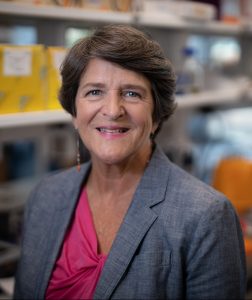New research on Chlamydia trachomatis from the other side of the world and the UNC Pediatric Infectious Diseases program were featured in the New York Times.

New research on Chlamydia trachomatis from the other side of the world and the UNC Pediatric Infectious Diseases program was recently featured in the New York Times. Researchers with the University of Sunshine Coast in Queensland, Australia, are running trials for the development a chlamydia vaccine for koalas. Chlamyda “a pared-down, single-celled bacterium that acts like a virus — has been especially successful, infecting everything from frogs to fish to parakeets. You might say chlamydia connects us all.” Though research using koalas may not be practical in the United States, the vaccine trials in Australia may offer valuable clues for researchers across the globe who are developing a human vaccine – researchers like Dr. Toni Darville at UNC.
Dr. Toni Darville, Distinguished Professor of Pediatrics and Microbiology & Immunology and Scientific Director of the Children’s Research Institute, has studied the pathogenesis of genital tract disease due to Chlamydia trachomatis for many years. C. trachomatis is a sexually-transmitted bacterium that infects over 100 million people worldwide. In the United States, more than 1 million women are infected annually. When left untreated, CT infection can lead to Pelvic Inflammatory Disease (PID), chronic pelvic pain, ectopic pregnancy and infertility.
In May 2019, Dr. Darville and her collaborators were awarded a five-year, $10.7 million grant from NIAID to establish the UNC Chlamydia Vaccine Initiative STI Cooperative Research Center. The Chlamydia Vaccine Initiative is a partnership of academic institutions and industry to explore systems-level host/pathogen molecular interactions during infection of the female genital tract by C. trachomatis and to develop a vaccine.
Darville is also co-director of the MD-PhD Program at the UNC School of Medicine